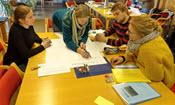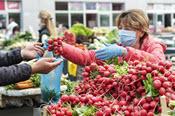New ag research methods reach farm concessions
Living labs provide opportunities for global collaboration to solve complex issues in the agri-food industries
By Kate Ayers
Staff Writer
Better Farming
Agri-food groups around the world promote sustainability throughout the value chain and launch new efforts to tackle overarching challenges.
Through living laboratories, better knowns as living labs, farmers, advisers, researchers, consultants, and other stakeholders co-develop and test innovative solutions to complex agri-environmental issues.













 Kamal Khadka, a PhD student in the department of plant agriculture at the University of Guelph, is devoting his research to helping improve opportunities for cereal farmers in his home country of Nepal.
Kamal Khadka, a PhD student in the department of plant agriculture at the University of Guelph, is devoting his research to helping improve opportunities for cereal farmers in his home country of Nepal.